
We will ask you about music colleges, music colleges, music classroom course programs, summer classes, local life information, etc. that only those who have experienced studying abroad in music can understand.Please use it as a reference for yourself in the future.
Profile of Akihiko Sato
In junior high school, he started playing drums with percussion in the brass band club.Joined a jazz study group at university and started jazz drumming. 2007,Siena Jazz Summer CourseParticipate in.At the seminar, he will be selected as a member of the selected big band. In 2007, participated in the Yokohama Jazz Promenade as a combo band.
-First of all, please tell us your biography.
Sato: When I was in junior high school, I joined the brass band club because I wanted to play the drums, and I continued to be in the brass band club in high school.I joined a combo-based jazz study group at university and started playing jazz that I was interested in.At the same time, I formed a pop band, and even after graduating from college, I continued to release CDs as indie music.On the other hand, after graduating from university, I studied not only jazz but also pop and rock at Yamaha Conservatory.After graduating, my main activity was pop music, but gradually I started to want to play jazz in earnest, so I started going to jazz clubs and live houses.
-Are you still playing pop music?
Sato: I'll play when asked, but now I'm thinking of focusing on jazz in earnest.
-Are you playing at a certain live house?
Sato: I often perform at live houses in my hometown of Yokohama and Yokosuka.There are quite a lot of such shops in Yokohama.
-What made you participate in the seminar?
Sato: When I didn't have much work to play, I decided to do something and became interested in this class on this site that I had been peeking at for a long time.I don't think there's usually anyone going to jazz in Italy (laughs).
-Did you get lost in the United States?
Sato: At first, I thought about the United States, but when Japanese people want to study jazz, they usually go to the United States.That's why I tried to do something different from other people (laughs).
-So in Italy?
Sato: I was originally interested in Italian jazz.There was also a trumpet sensei called Enrico Rava in the class, who is a world-famous person in Italian jazz.I went to see it when I came to Blue Note in Tokyo, which was also the reason I participated in this class.At that time, I found Italian jazz interesting.It's not as muddy as American jazz ...It is often said that European jazz is strongly influenced by classical music.After all, Italian jazz also feels like a sublimation of classical music into jazz.
-Please tell us about the overall situation of the Siena Jazz Workshop.
Sato: This workshop was part of a big event called Siena Jazz.A total of about 200 people participated.It's about 30 people in each part.In addition to the musical instruments, there were several people who came for the composition course.
-How did the lesson proceed?
Sato: There was a selection test at the beginning, so we were divided into two classes, and each class had a sensei.
-What kind of test was the selection test?
Sato: This is a test to see if you can do basic things. They were called one by one and were asked, "Can you do something like this?" And "Try this."
-What was the content of the lesson?
Sato: Two drums are lined up and two people have a session.Basically, two students had a session, but in some cases sensei hit it.For example, themes such as "at an early tempo" and "at such a beat" are given, and the two people have a session along with it.Sensei listens to it and gives guidance.
-Is it a group lesson all the time?
Sato That's right.It's a short-term course, so I think that's the way it is.
-Are the other students good?
Sato: Some of the people who took the course were young and some said they would play jazz from now on, but fortunately I was able to enter the advanced class, so everyone is good. It was.The level of music was very high.
-Please tell us the schedule of the seminar.
Sato: The schedule starts at 9am and ends at 5pm, but it was about 5:1 pm.There is a break for about an hour in between, and the rest is a class.There were lectures as well as practical lessons, but it was really perfect including that (laughs).
-What kind of class was the lecture?

Sato: There were classes on music theory, hearing, the history of jazz, and music analysis.In theory lessons, you will learn about chords and scales.It was good to know that even with drums.In music analysis, you listen to a song and analyze what the composition, rhythm, and progress of that song are.
-In what language are you communicating?
Sato: It's basically Italian, but when I didn't understand it during the practical lesson, sensei rephrased it in English.In the theory class, it takes time if sensei rephrases each time, so he introduced me to a student who is fluent in English and he taught me in English.I'm not so familiar with the theory, but if I think about it in my musical vocabulary, I could understand it.
-Did you study the language in advance after deciding to participate?
Sato: I studied not only English but also Italian and musical terms.As a result it was very helpful.It's interesting, and as your ears get used to it, you'll be able to roughly understand Italian as a musical term.
-Then, did you have much trouble with the words?
Sato: No, I was in trouble (laughs).I was studying and thought that I would be able to do something about it, but when it came to it, I was so nervous that I couldn't hear it.Sometimes I mistakenly accepted the instructions and played.Also, instead of being passive, I wish I had the language ability to approach from this side, such as "I want to express this, but how should I play?"
-So you didn't often ask yourself questions?
Sato That's right.I regret that.I think I should have said this in English if I calmed down later, but I couldn't quite come up with the words on the spot (laughs).
-Did the Japanese participate?
Sato: No, I was alone.Most were Italian, and some were from other European countries.I had expected it to some extent, but I was really alone ... (laughs).In that sense, it really stood out.When I went to the first briefing session, I felt the line of sight (laughs).
-How long did you practice individually during the course?
Sato: Actually, I didn't have time to do it.There was a final concert, and I formed a big band with selected members, and I was selected as that member.So, the practice was until about 7 pm after the class, and I couldn't get enough time to practice individually.
-You were selected as a member of the selection.It's amazing.
Sato: It seems that he was watching at the same time as the selection test for class classification, and fortunately sensei recommended it.
-How was your practice with the selected members?
Sato: When I first practiced, I played solos one by one, and at the end I also did a drum solo, but after the solo was over, everyone applauded, "You're good." ..That made it a lot easier.I thought it would be fun to do this.
-Did you practice the band individually in advance?
Sato That's right.I looked only at the music and played on the spot during the whole practice.However, after cutting the lunch break (laughs), the students had a session with other musical instruments.
-Did you have a room for the session?
Sato: It's lunch break, so I used an open room.After that, I was able to use a room that was not originally used by making a reservation in advance.
-How was the Italian secretariat?
Sato: There were some people who were suitable (laughs), but I think they were kind enough.I was often confused because the basic system is different from Japan, but he kindly taught me.
-How was your accommodation?
I stayed in a university dormitory in Siena Sato.It was a double room.It seems that the people who participated in the seminar were distributed quite differently, not only in the university dormitories, but also in the hotels.
-Did the accommodation and the venue of the seminar be close?
Sato: My accommodation was quite far away, and it took about 40 minutes to walk.I used to use the bus in the morning because there was a bus.
-Did you walk on your way home?

Sato: It's a big event called Siena Jazz, so instructors and Italian professional musicians are performing live at the venue of the seminar and on the special stage.When I watch it after practice, I end up at around 12:XNUMX on my way home (laughs).Of course, the bus was over, so I walked home on my way home.I wanted to watch the concert because it was a big deal.
-How was your security?
Sato: That's good.I didn't hear that people around me were in danger.There were places where there wasn't much traffic because it was far from my accommodation, but I didn't feel it was dangerous.It's a small town, so I think it's safe.
-How was your meal?
Sato: I used to pick up paninis at a nearby bar for lunch and eat at a pizza restaurant at night.The food was delicious at every shop.
-Are there any tips to get along with people from overseas?
Sato: Do you say yes or no clearly?At first, I made a vague Japanese response, but that made the other person angry.A younger child, about 16 years old, said, "Isn't there a word for Japanese people?" (Laughs).The people over there are clear.However, even if you say no, it will not be rude, so if you don't like it, you should say no.After that, I think it's better to talk to them and communicate with them.
-Did you have a moment when you were happy to attend the seminar?
Sato: That's what you did at the final concert.There is a very big cathedral in Siena, but I set up a big stage in the square in front of it and played there.I had been practicing with the members for a long time, so I was able to build a relationship of trust and accept myself over there, and that was conveyed.That moment was really good.
-Are there any areas where you feel that you have grown up after studying abroad?
Sato: On the playing side, my friends told me "Let's have more fun" over there, and I thought it was important to have fun.The friend says that when I play, it looks painful.By the way, I realized that I had the feeling that I would face it from the time I was in Japan, and I wasn't really conscious of having fun.Also, before studying abroad, I was at a loss as to how to express what I had learned the technique, but in the lesson, there were many contents such as "How can I have a musical dialogue?" So I learned a lot. I was impressed by the fact that he said, "Think about how you want to express it first."
-How about other than music?
Sato: I was keenly aware that if I didn't do anything myself, I wouldn't be able to do anything.For example, even young people make various arrangements by themselves during the seminar.In Japan, it feels like a stepping stone.
-Is that the difference between Japan and Italy?
Sato That's right.I think the part of self-responsibility is strong.It doesn't even tell you the basics of how to digest the course.Originally, you should be able to do various things in the class, but you will not know unless you ask from here.For example, I knew that I could borrow materials only after I heard about it.If you want to make the most of the training, I think it will be important for you to work on your own.
-Please tell us what you should prepare well before studying abroad.
Sato Language.If you learn a language, you will understand it differently.Certainly there are parts that can be communicated without words, but since it is still a class, if you want to ask deep questions, you need to learn a language.
-Please give some advice to those who will study abroad in the future.
Sato: I think people who want to go to Siena are interested in Italy, but nowadays, the same information can be shared in Japan, the United States, and Italy.Under such circumstances, I think it is better to clarify why you want to go to Italy. Even Italians ask me, "Why did you come to Italy?" (Laughs).I think this is the case in other countries as well, but if you clearly communicate your intentions, I think they will accept it.
-Finally, please tell us your future activity plans.
Sato: Live activities in multiple groups, centered on the jazz clubs in Yokohama and Yokosuka.
-Are you not doing big band anymore?
Sato: If I have a chance, I would like to take advantage of this experience and try a big band.
-Please let us know if it is realized.looking forward to it.Thank you very much.
For the latest status of Sato, please visit the following website!
http://www.geocities.jp/pacifico_sato/



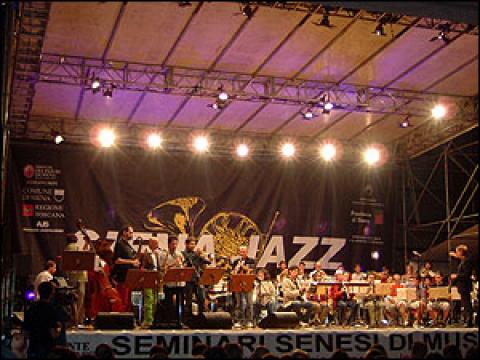
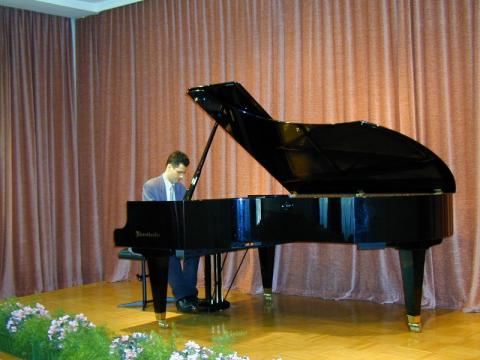
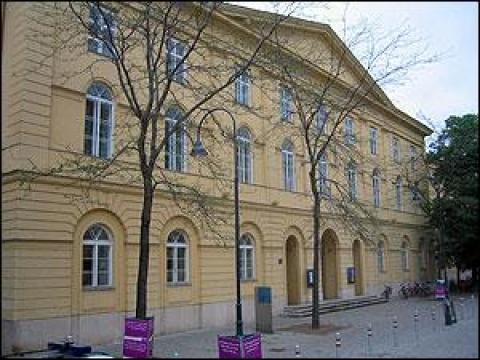
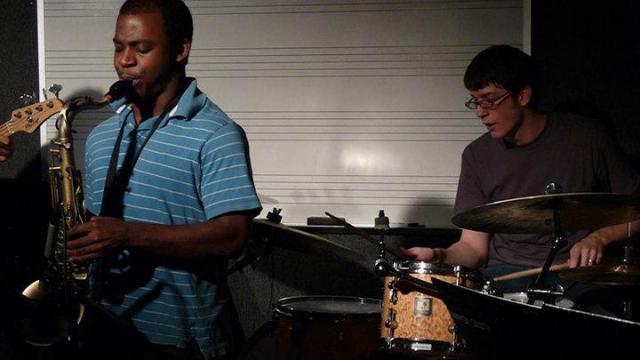
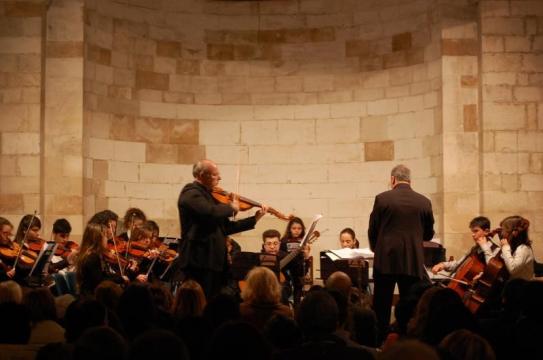
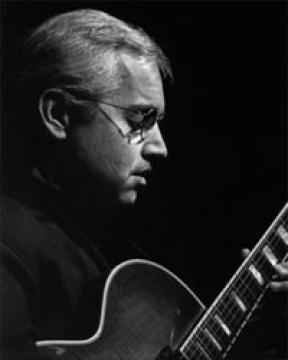


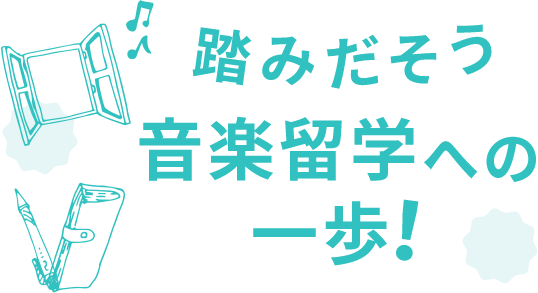
 Book a Counseling
Book a Counseling